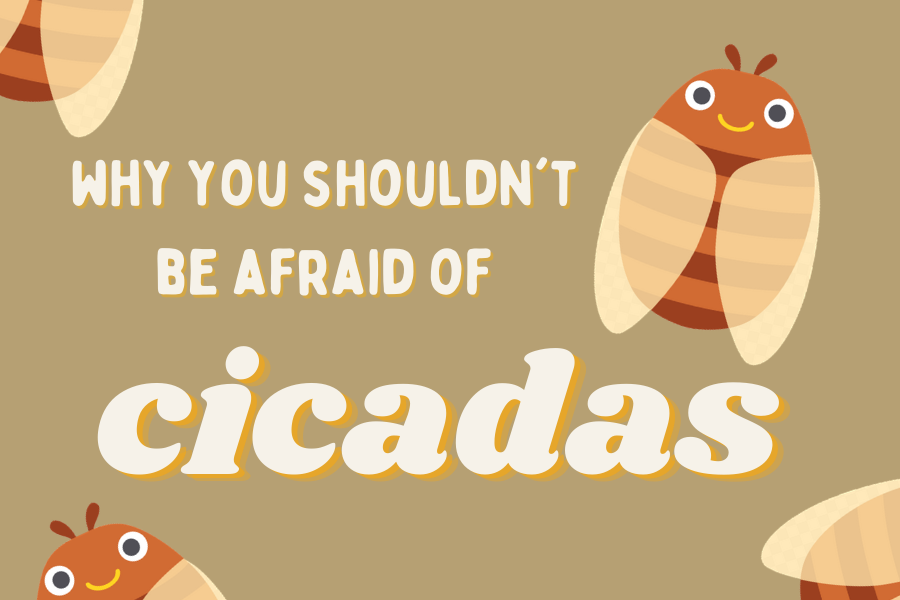Why You Shouldn’t Be Afraid of Cicadas
Cicadas: the legendary insects who seem to only appear in biblical plagues or horror movies. These bugs have been feared for years, but the horrible tales that you may have heard in the past are exaggerated. In reality, cicadas are harmless animals who are simply trying to live, reproduce, and die a peaceful death.
What are cicadas? And why are we talking about them now?
Cicadas are insects that are closely related to leafhoppers and aphids, and there are two main types: annual and periodic. As the name suggests, annual cicadas reappear every year during the summertime; in fact, the sound of buzzing bugs that many people associate with summer is usually produced by cicadas. On the other hand, periodic cicadas only emerge every 13 or 17 years.
This year, the species that is appearing is Brood X, which has not emerged since 2004. For 17 years, these bugs have lived under the ground on tree roots, drinking sap for nutrients. This year, the cicadas will come up to mate and reproduce. After the females lay their eggs, they will die and decay at the bases of trees. The cicadas will appear when the ground temperature reaches 64ºF – late May or early June in NY – and will start in the south but make their way north. Brood X is also nicknamed “the Great Eastern Breed” because they tend to show up on the east coast: Maryland will experience the peak of cicada arrivals.
Why are people so afraid of cicadas?
When cicadas come out of the ground, the males produce a mating sound to attract females and reproduce. Because there are so many periodic cicadas (usually about 1.5 million per acre), the sound that they generate can become frustrating and deafening. The sound has been described as “filling your entire body, seeping into your bones and driving you mad.” In addition, when these cicadas die, they leave their dead carcasses at the bottom of trees, creating disgusting pile-ups.
Despite these annoyances, cicadas do not have any long-lasting consequences on humans or the environment. Early Europeans compared these insects to locusts, but they are not nearly as harmful. They don’t travel in swarms, are poor fliers, and don’t consume plants or destroy crops. They also don’t sting or bite: they don’t even have a mouth, just an extremity to take sap from trees!
In reality, cicadas are actually beneficial to ecosystems. They can serve as prey to various fish, birds, or mammals. When they decompose, they provide nutrients for trees, returning what they took over their 17-year feeding period. Some people surprisingly eat cicadas – they have been found to be a good source of protein.
Overall, there is no reason to be scared of cicadas; they can’t harm you and will be gone by the end of the summer. However, if you find yourself outside one day and irritated by their loud chirping, maybe collect a few and make them into a tasty snack!
Works Cited
Helmore, Edward. “Trillions of brood X cicadas move closer to emergence as soil temperatures rise.” The Guardian, 11 May 2021, www.theguardian.com/environment/2021/may/11/trillions-brood-x-cicadas-soil-temperatures. Accessed 18 May 2021.
Renkl, Margaret. “The Cicadas Are Coming. It’s Not an Invasion. It’s a Miracle.” New York Times, 16 May 2021, www.nytimes.com/2021/05/10/opinion/cicadas-brood-x-2021.html. Accessed 18 May 2021.
Wong, Kate. “Brood X Cicadas Are Emerging at Last.” Scientific American, 10 May 2021, www.scientificamerican.com/article/brood-x-cicadas-are-emerging-at-last1/. Accessed 18 May 2021.












